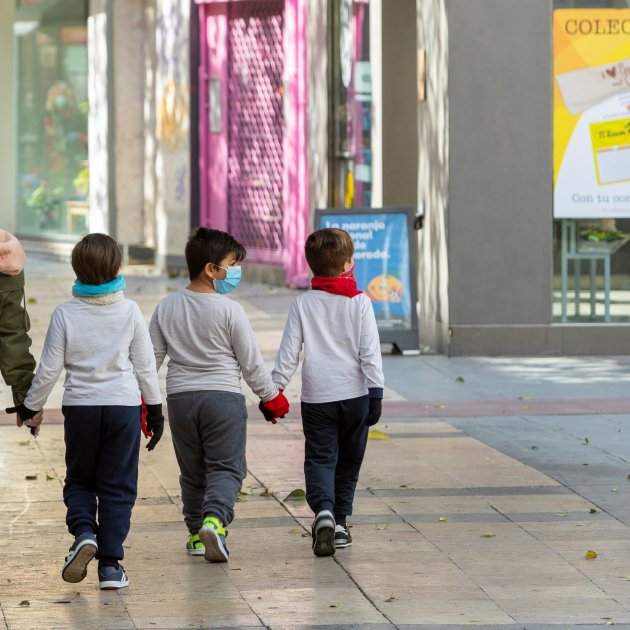After five weeks of being locked inside - often in apartments without even terraces or gardens - Spain's children are to have the latch lifted for them this Sunday, the date set by the government for its new rules to ease the lockdown regulations for those under 14 years of age. This Thursday, the Pedro Sánchez executive announced the details of what this "going out" permission will consist of. Children will be able to be in open spaces accompanied by an adult to walk or play, always maintaining the recommended safety distances and always staying within a kilometre of their home. This daily excursion outside cannot last longer than one hour. Each adult can accompany up to three children at a time. [NOTE: As of May 2nd, these outings with children are allowed between 12 noon and 7pm daily, not 9am-9pm as originally. See more details here)
Thus, in the end, the measures are very different to the "shopping trips" plan which provoked an outcry when announced in Madrid on Tuesday. From Sunday, children will not only be able to walk, but will also be permitted to "run, jump and exercise", as long as they are accompanied by a responsible adult and social distancing measures are respected. They can also take toys, such as balls, bikes or scooters. But they will not be allowed to access playgrounds or the play areas of parks, which could pose a risk of infection. The person accompanying them may be a parent, guardian or an adult sibling.
"Avoid rush hours"
The health minister, Salvador Illa, reiterated the three "priorities" that must be maintained: a minimum interpersonal distance of one metre and an ideal of two metres; "very frequent" handwashing; and maintaining basic hygiene conditions for public and private spaces. If there's a chance that these conditions cannot be met (eg, on distancing), the use of masks is recommended. Deputy PM Pablo Iglesias, who participated in this ministerial order, called for families to "avoid rush hours."
This new eased lockdown measure will affect about six million children across the Spanish state. Note that the permission applies only to those aged 0-13 years: after some ambiguity in government statements using the phrases "up to 14 years" and "under 14 years", the final text of the regulation (below, in Spanish) makes it clear that those who are currently 14 years old are not included. For teenagers aged from 14 to 17, the argument is that they are already able to undertake other permitted activities on their own, such as trips to the bakery or walking dogs.
